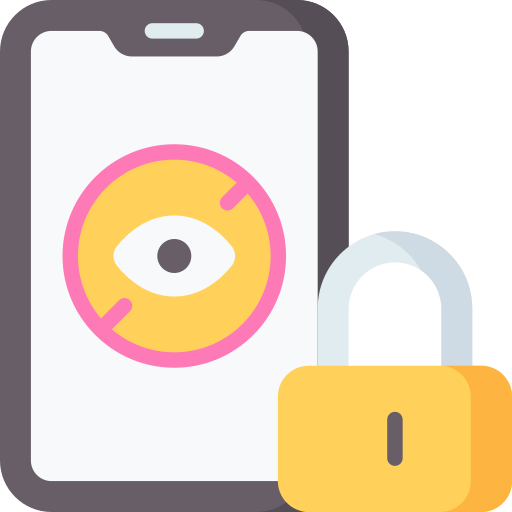Understanding the Importance of Digital Monitoring for Children’s Safety
Ensuring the safety of children in today’s digital age is of paramount importance. With the rapid expansion of technology and the increasing accessibility of the internet, parents face unique challenges in protecting their children from potential online dangers. Digital monitoring has emerged as a crucial tool in this endeavor, allowing parents to actively supervise their children’s online activities and safeguard them from potential risks.
Digital monitoring enables parents to gain a comprehensive understanding of their children’s digital behavior. By monitoring their browsing history, social media interactions, and online conversations, parents can identify any signs of cyberbullying, predatory behavior, or exposure to inappropriate content. This proactive approach allows parents to intervene promptly and provide necessary support or guidance to their children, helping to mitigate potential harm. Additionally, by closely monitoring their children’s online activities, parents can identify any signs of excessive screen time or addictive behaviors, promoting a healthy balance between the digital world and other aspects of their children’s lives.
Balancing Privacy and Protection: Exploring the Ethics of Digital Surveillance
Digital surveillance has become increasingly prevalent in today’s technological age, as parents strive to protect their children from online threats. However, the ethical implications of such surveillance cannot be overlooked. Balancing privacy and protection requires careful consideration of the child’s autonomy and right to privacy, while also ensuring their safety in the digital realm. The challenge lies in finding the delicate equilibrium between safeguarding children and invading their privacy.
On one hand, digital monitoring can be seen as a necessary measure to keep children safe from cyberbullying, online predators, and exposure to inappropriate content. It provides parents with the means to intervene before harm is done and allows for proactive measures to be taken. However, on the other hand, excessive monitoring can compromise a child’s sense of autonomy and trust in their parent-child relationship. It is important to recognize that children need their own space, both online and offline, in order to grow and develop independently. Striking the right balance between privacy and protection requires clear guidelines and open communication between parents and children, fostering an atmosphere of trust and understanding.
Navigating the Boundaries: Setting Clear Guidelines for Digital Monitoring
Setting clear guidelines for digital monitoring is crucial in maintaining a healthy balance between protecting children and respecting their privacy. As parents, it is essential to establish boundaries and expectations early on, ensuring that both parties understand the reasons behind digital monitoring. By openly discussing the purpose and necessity of monitoring, parents can foster trust and maintain a respectful parent-child relationship.
When setting guidelines, it is important to consider the age and maturity of the child, as well as their individual needs and preferences. This means being open to negotiation and compromise, allowing children to have a say in the rules that are established. By involving children in the process, they are more likely to feel a sense of ownership and responsibility for their own online behavior. Additionally, clearly outlining consequences for violating the set guidelines can help reinforce the importance of adhering to them. By setting clear boundaries in a collaborative manner, parents can strike a balance between protecting their children and promoting their autonomy.
The Potential Risks of Over-monitoring: Striking a Healthy Balance
Digital monitoring can undoubtedly play a crucial role in safeguarding children from potential online dangers. However, excessive monitoring can have its own set of risks and implications. When parents over-monitor their children’s digital activities, it can lead to a breakdown in trust and hinder the development of a healthy parent-child relationship.
One potential risk of over-monitoring is the intrusion of children’s privacy. Constantly monitoring their online interactions and messages can make them feel like their personal space is being invaded. This invasion of privacy may drive them to seek out alternative means of communication or resort to hiding their activities, which can potentially put them at greater risk. Striking a balance between privacy and protection is essential to ensure that children feel respected and trusted, while still being kept safe in the digital world.
Respecting Individual Autonomy: Fostering Trust in Parent-Child Relationships
Just as privacy is important for individuals, children also value their autonomy and independence. In the context of digital monitoring, it is crucial for parents to strike a balance between protecting their children and respecting their individual autonomy. By involving children in the conversation and decision-making process, parents can foster a sense of trust and encourage open communication. This approach not only allows children to feel heard and respected, but also helps them develop the skills and confidence to make responsible choices online.
Respecting individual autonomy means recognizing that children have their own unique interests, preferences, and boundaries. It is essential for parents to avoid excessive intrusion or over-monitoring, as this may lead to a breakdown in trust between parent and child. By adopting a collaborative approach and setting clear guidelines together, parents can create a healthy balance between protection and autonomy. This fosters a trusting parent-child relationship, where both parties feel comfortable discussing digital monitoring and online safety concerns without fear of judgment or invasion of privacy.
Promoting Open Communication: Discussing Digital Monitoring with Your Children
Promoting open communication with your children about digital monitoring is essential for building trust and understanding. It provides an opportunity to establish clear expectations and guidelines regarding their online activities. Instead of implementing monitoring measures without their knowledge, involve them in the process by explaining why it is necessary and how it can help ensure their safety.
Initiating this conversation requires sensitivity and empathy. Begin by creating a safe and non-judgmental space where your children feel comfortable expressing their thoughts and concerns. Allow them to share their experiences and opinions about the potential benefits and drawbacks of digital monitoring. By listening attentively and validating their feelings, you can foster a sense of respect and collaboration. Ultimately, promoting open communication can help your children feel empowered and understand the importance of digital monitoring as a means of safeguarding their well-being.
Safeguarding Against Online Threats: The Role of Digital Monitoring
With the exponential growth of the internet and its pervasive presence in our daily lives, safeguarding children against online threats has become an essential concern for parents and caregivers. Digital monitoring plays a crucial role in ensuring their safety within this virtual landscape. By actively monitoring their online activities, parents can be aware of the potential risks they might encounter, such as cyberbullying, inappropriate content, or online predators. Through digital monitoring, parents can swiftly identify these threats and take prompt action to protect their children from harm.
Digital monitoring provides an additional layer of security for children in the digital age. It allows parents to gain insight into their children’s online behavior, while also addressing any potential issues through proactive interventions. By setting clear guidelines and boundaries for digital usage, parents can equip their children with the necessary knowledge and skills to navigate the online world safely. Ultimately, digital monitoring serves as a vital tool in safeguarding against online threats, ensuring the well-being of children as they explore the vast realm of the internet.
Recognizing the Legal and Ethical Implications of Digital Surveillance
Digital surveillance has become a common practice in many households, especially when it comes to children’s online activities. However, it is essential to recognize the legal and ethical implications of this form of monitoring. From a legal perspective, parents have the right to oversee their children’s online behavior and ensure their safety. However, it is crucial to strike a balance between protecting children and violating their privacy rights. It is essential to be aware of the laws and regulations associated with digital monitoring, as well as any potential legal ramifications of crossing boundaries.
Ethically, digital surveillance raises questions about trust, autonomy, and the impact on parent-child relationships. While it is the responsibility of parents to ensure their children’s safety and guide their online behavior, over-monitoring can erode trust and stifle a child’s development of autonomy and independence. It is crucial to consider the potential effects on the child’s emotional well-being and their perception of their own privacy rights. Finding a balance between monitoring for safety and respecting a child’s autonomy is vital in maintaining a healthy parent-child relationship.
Exploring Alternatives: Finding Additional Strategies for Ensuring Online Safety
There are a multitude of options available when it comes to ensuring online safety for children beyond digital monitoring. One approach is to prioritize education and awareness. By teaching children about the potential risks and dangers they may encounter online, they can make more informed decisions and better protect themselves. This includes educating them about the importance of privacy, the risks of sharing personal information, and how to recognize and avoid online scams or harmful content.
Another alternative is to establish clear rules and boundaries for internet use. By setting expectations and guidelines for appropriate online behavior, parents can help children develop responsible digital habits. This includes establishing limits on screen time, specifying which websites or apps they are allowed to use, and encouraging an open dialogue about any concerns or problems that may arise. Creating a safe and open environment where children feel comfortable discussing their online experiences can go a long way in protecting their well-being.
Cultivating Responsible Digital Citizenship: Empowering Children to Make Informed Choices
With the increasing dependence on technology in today’s society, it is crucial for children to develop responsible digital citizenship skills. Empowering children to make informed choices online not only ensures their safety, but also cultivates a sense of autonomy and self-regulation. By providing children with the necessary knowledge and tools, parents can play a pivotal role in guiding their children towards responsible online behavior.
One way to empower children in making informed choices is by educating them about the potential risks and consequences of their online actions. It is important for parents to have open and honest conversations with their children about the importance of privacy, respecting the rights of others, and practicing good digital etiquette. By explaining the potential dangers of sharing personal information or engaging in risky online behaviors, children can develop a better understanding of the impact their actions can have on themselves and others. Furthermore, parents can help children navigate through the vast amount of information available online by teaching them critical thinking skills and encouraging them to question the reliability and credibility of online sources.
What is digital monitoring?
Digital monitoring refers to the act of monitoring a child’s online activities, including their internet usage, social media interactions, and overall online behavior.
Why is digital monitoring important for children’s safety?
Digital monitoring helps parents and guardians ensure that children are engaging in safe and responsible online behavior. It allows them to identify and address potential risks or threats that may arise in the digital world.
Are there any potential downsides to over-monitoring a child’s online activities?
Yes, over-monitoring can lead to a lack of trust between parents and children, invasion of privacy, and hinder the development of independent decision-making skills.
How can parents strike a balance between privacy and protection when it comes to digital surveillance?
Parents should establish clear guidelines and boundaries for digital monitoring, respecting their child’s need for privacy while ensuring their safety and well-being online.
How can parents foster trust in parent-child relationships while implementing digital monitoring?
It is important for parents to communicate openly and honestly with their children about digital monitoring, emphasizing the intentions of keeping them safe and protected rather than being intrusive.
How can parents discuss digital monitoring with their children?
Parents should initiate open conversations about digital monitoring, explaining the reasons behind it and addressing any concerns or questions their children may have.
What role does digital monitoring play in safeguarding against online threats?
Digital monitoring allows parents to identify and address potential online threats such as cyberbullying, online predators, and exposure to inappropriate content, helping to protect their children from harm.
What are some legal and ethical implications of digital surveillance?
It is crucial for parents to be aware of the legal and ethical considerations surrounding digital monitoring, respecting their child’s rights to privacy while also fulfilling their duty to ensure their safety.
Are there any alternative strategies for ensuring online safety besides digital monitoring?
Yes, in addition to digital monitoring, parents can teach their children about responsible online behavior, educate them about the potential risks and dangers, and encourage open communication about their online experiences.
How can parents empower their children to make informed choices and be responsible digital citizens?
Parents can empower their children by educating them about the potential risks and responsibilities of being online, teaching them critical thinking skills, and encouraging them to make informed choices when using digital platforms.




